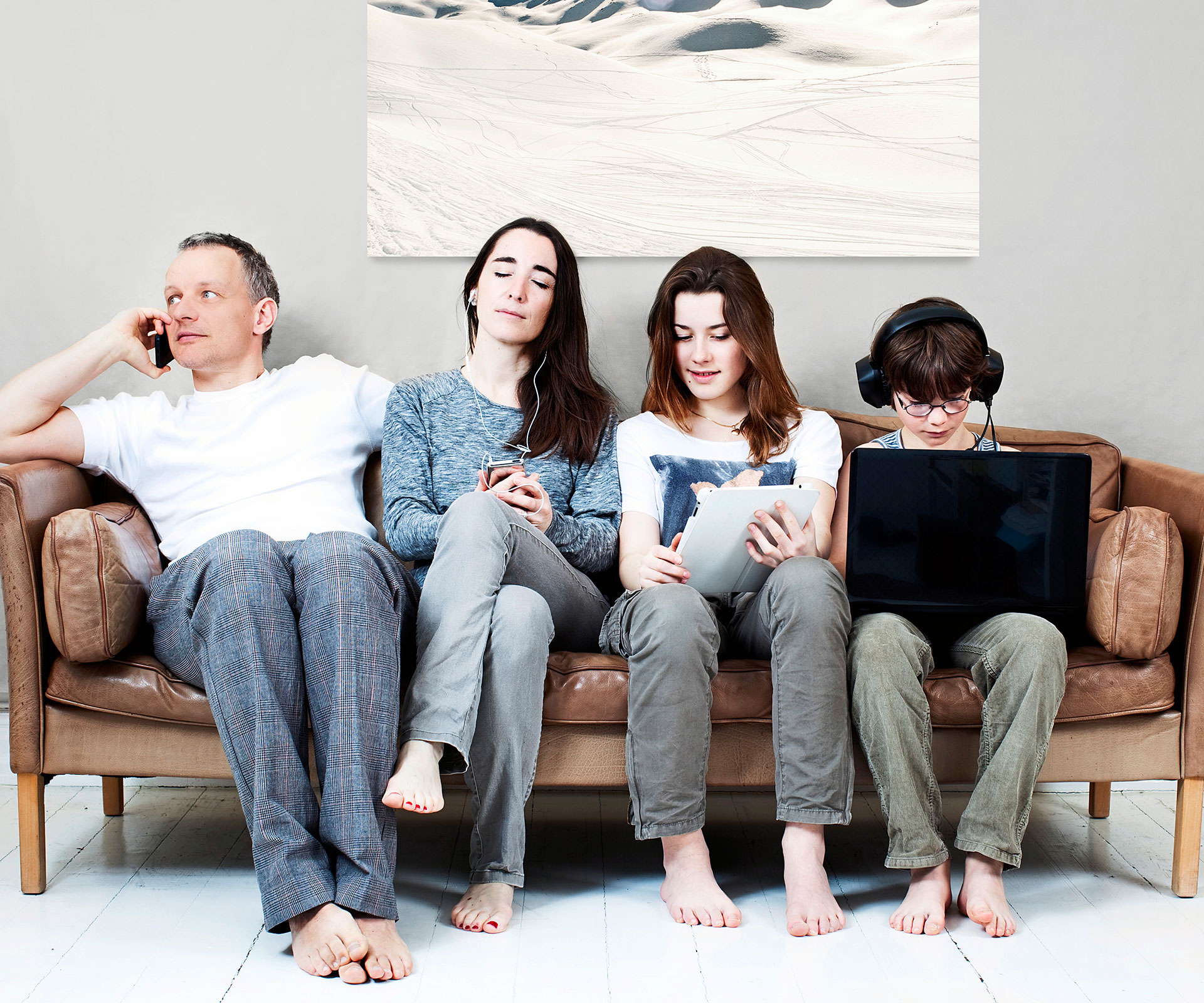Like it or loathe it, technology is something we cannot live without. From the moment we wake up in the morning (the customised ring of a smartphone’s alarm) until the moment we go to bed at night (a final check of emails), technology is an integral part of modern life.
Yet just how detrimental is this for our health? We explore some of the risks and how to avoid them.
‘Text-neck’ syndrome:
Bending your head down to look at your phone can have serious consequences for your spine, according to a new study.
Kenneth Hansraj, the chief of spine surgery at New York Spine Surgery and Rehabilitation Medicine, has found that the increased stress on your spine could lead to “early wear, tear, degeneration and possibly surgeries”.
The study, which appears in Surgical Technology International, acknowledged that it is “nearly impossible to avoid the technologies that cause these issues”.
However, Dr Hansraj advised that “individuals should make an effort to look at their phones with a neutral spine and avoid spending hours each day hunched over”.
An adult head weighs about 4.5 to 5.5 kilograms in the neutral position, but as the head tilts forward, the force on the neck surges upwards. Earlier this year, the UK-based United Chiropractic Association said that poor posture arising from the overuse of smartphones posed as big a health risk as obesity.
Obesity:
Consultant orthopaedic surgeon Jonathan Dearing says that by far the biggest threat arising from technology is the reduction of physical activity – the fourth biggest cause of death worldwide.
“Our parents’ generation was far more active than we are,” he says. “If someone is on the floor above you at work, rather than going to see them, you would now send an email. And you would phone up a friend rather than travelling to meet them.
“Inactivity leads to obesity and it means the risk of cardiovascular disease is greatly increased. With pretty much every pathology – such as breast cancer, prostate cancer or bowel cancer – you are both more likely to get it and less likely to recover from it, if you are inactive.”
Depression:
Not only could staring at a screen in bed stop you from sleeping, it could also trigger depression, according to a study by Samer Hattar, Associate Professor of Biology at Johns Hopkins University in the US.
He found that mice which were regularly exposed to light at night became ‘depressed’, showing less interest in doing ‘fun’ things, less likely to explore new objects in their cages and not moving around as much. They also had higher levels of cortisol, the stress hormone.
Although the study was in mice, Associate Professor Hattar says mice and men are similar in certain ways and so the study holds lessons for people.
“I’m not saying we have to sit in complete darkness at night, but I do recommend that we should switch on fewer lamps and stick to less intense light bulbs. Basically, only use what you need to see,” he advises.
Radiation:
The International Agency For Research On Cancer, part of the World Health Organisation, declared in 2011 that mobile phones may increase the risk of developing brain cancer. It classified the radiation emitted by handsets as “possibly carcinogenic”, placing mobiles in the same risk category as lead, the pesticide DDT and petrol exhausts.
The Ministry of Health says this classification “doesn’t mean that [cellphones] definitely cause cancer, but that we can’t rule it out”.
The Ministry goes on to state: “Cellphones sold in New Zealand all comply with the exposure limits in the radiofrequency field exposure standard. However, you should pay attention to any safety instructions in your cellphone user manual. There may be a minimum separation distance to ensure that exposures comply with the limits.”
If you would like to reduce your exposure, here are some tips:
Only make short calls on a mobile phone, when necessary.
Keep your phone away from your body when you are not using it.
Use a hands-free kit.
Only use a mobile phone where the reception is strong.
Addiction:
Dr Aric Sigman, an Associate Fellow of the British Psychological Society, says a generation of young people are growing up with a virtual addiction to computers, televisions and smartphones.
“Technology should be a tool, not a burden or a health risk,” he told the Royal College of Paediatrics and Child Health annual conference. “Whether children or adults are formally ‘addicted’ to screen technology or not, many of them overuse technology and have developed an unhealthy dependency on it.”
Dr Sigman says parents who constantly fiddle with mobile phones or iPads in front of their children are guilty of “benign neglect”, and advises that children under the age of three should have no access to screens at all. Those under the age of seven, he says, should have no more than an hour a day outside of school.
Photos: Getty Images.


